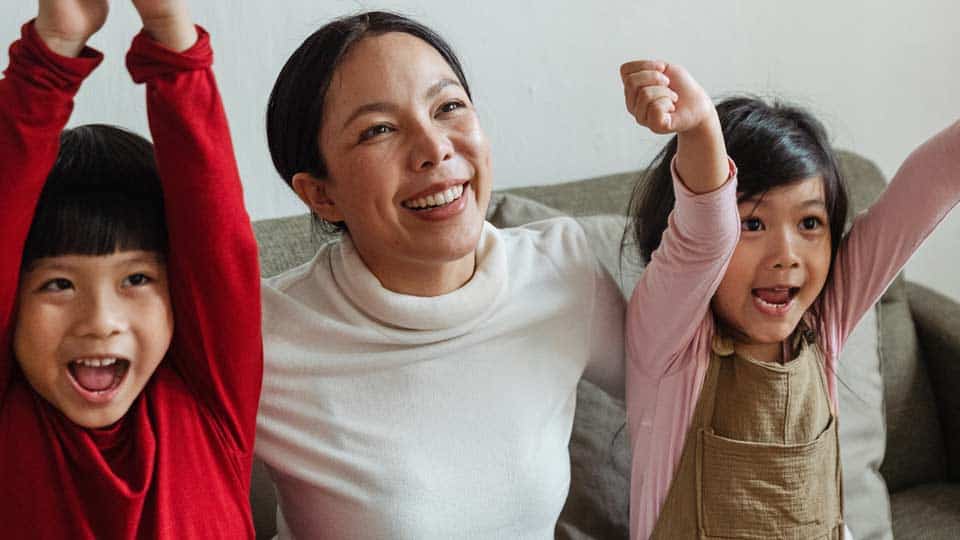Parenting Tips for Mothers

Being a mother is one of the toughest but most fulfilling jobs. Sometimes you wish your children came with instruction manuals. Here are some tips to ease this parenting journey.
Parenting Styles
There is no one correct way to raise a child. You may find yourself bombarded by advice from relatives, friends or even strangers. What works for your friend’s child may simply not work for yours. Listen to the constructive feedback, ignore the non-constructive ones, trust yourself, and enjoy this journey. Above all, be loving, firm and consistent in your approach.
General Health
Maximise your child’s health potential by following these tips:
1. Get your child vaccinated. Immunisations protect your child from dangerous childhood diseases. All Singapore citizens and Permanent Residents can receive subsidies for the nationally-recommended vaccinations at both CHAS GP clinics and polyclinics. Vaccination packages for babies and children are also available at Raffles Children’s Centre.
2. Bring your child for scheduled developmental screenings. There is an established age range by which each child is expected to reach a specific milestone. Should your child have a developmental delay, it is best to identify it early so that the child can receive early intervention.
3. Watch the screen time. Excessive screen time increases the risk of obesity, sleep problems, poor school performance and risky behaviours. For children younger than 18 months, use of screen media other than video-chatting should be discouraged. If you would like to introduce digital media to your child 18-24 months of age, choose high-quality programmes and watch them together because this is how toddlers learn best. Avoid letting your child use media independently and without supervision. For children older than 2 years, limit screen use to no more than 1 hour per day of high-quality programmes.
4. Create a smoke-free environment. Secondhand smoke is especially harmful to your child’s health because your child’s lungs are still developing. It increases the risk of sudden infant death syndrome (SIDS), ear infections, coughs and colds, lung problems and tooth decay. Children with asthma are especially sensitive to secondhand smoke. If you smoke, one of the best things you can do for your own health and the health of your child is to stop smoking. It may be hard to quit. Talk with a doctor if you need help.
Hygiene
Protect that smile. Do not let your child fall asleep with the bottle. Doing so increases the risks of dental cavities and ear infections. Also, get your child used to toothbrushing from a young age. Once your child is around 3 months old, you can gently wipe the child’s gums using a damp, clean handkerchief or gauze twice a day. Bring your child to a dental clinic when the first teeth erupt, and by the first year of age.
Sleep
1. Back to sleep. Until your child’s first birthday, make sure you always put your baby to sleep on his or her back to reduce the risk of sudden infant death syndrome (SIDS). Once your baby is comfortable rolling both ways, you do not have to return the baby to a back-sleeping position.
2. Help your baby learn to self-soothe to sleep. Put your baby to sleep drowsy but awake starting from 10-12 weeks of age. This will encourage the child to self-soothe to sleep without needing to be held, fed or rocked. Babies who learn to fall asleep on their own at bedtime are more likely to fall back to sleep without parental help when they naturally awaken during the night.
3. Consider dropping night feeds from 6 months of age. From 6 months of age, if your baby is healthy and developing well, it is okay to think about dropping night feeds. Continuing night-time feeds beyond this age may encourage habitual feeding in the night, preventing your child from learning how to self-soothe back to sleep.
It Takes a Village to Raise a Kid
1. Seek for trustworthy advice. With technology, there is information readily available at our fingertips – but not all information is true. Look for advice that is evidence-based. One useful online resource is “Healthychildren.org”, a parenting website by the American Academy of Pediatrics (AAP), providing reliable and evidence-based advice.
2. Be kind to yourself. Nobody is perfect. Do the best you can, and accept that you do not have all the answers. It is alright to ask for help. Take time out from parenting to do things for yourself – it does not mean you are selfish. Rather, it simply shows that you care about your own well-being, which is an important value to model for your child. Also, who wouldn’t want a happier mother?
Be the First to Know!
Like what you see? Receive more health and wellness articles from Raffles Medical Group to aid you in leading a healthy lifestyle.


